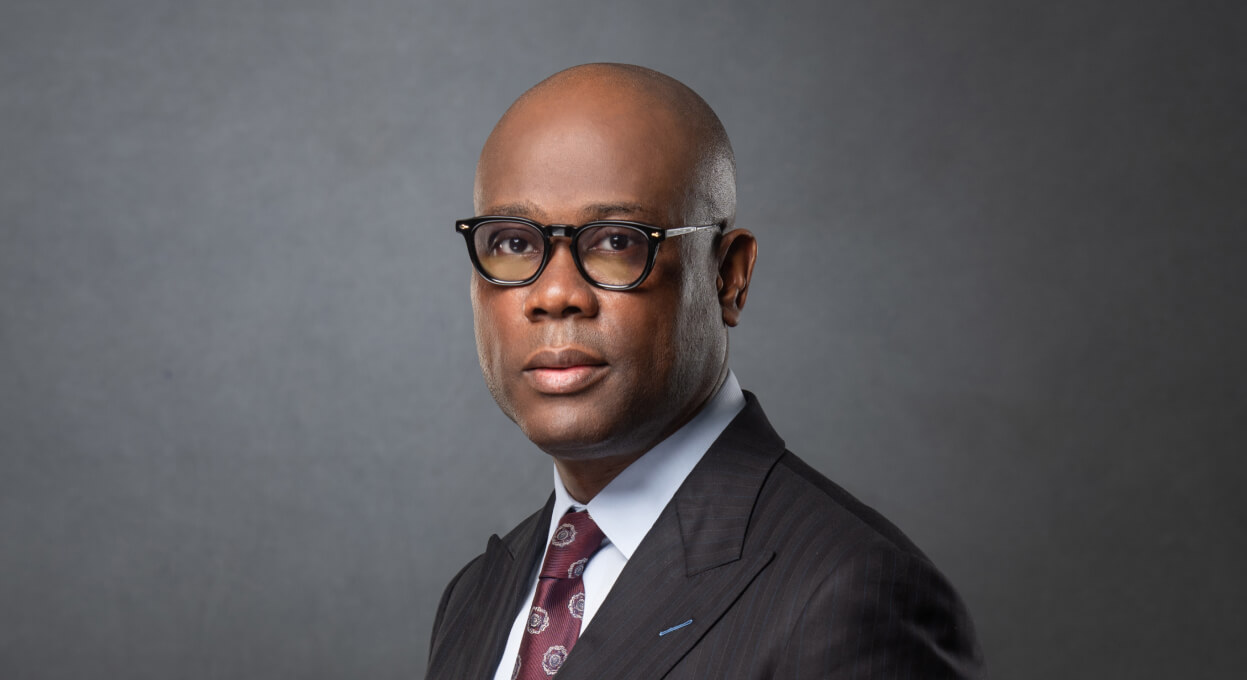Business
Herbert Wigwe: The secrets he took to the Grave

A good friend may keep your secrets for a period of time. A best friend keeps your secrets through thick and thin. But a loyal friend would take your secrets to the grave, like Herbert Wigwe.
At his death, a powerful cabal comprising his secret clientele has kept an asphyxiating distance from his enterprise, Access Holdings Plc, as though the skeletons he helped stash in their safe boxes were spring-loaded and ready to burst out onto the front lawn of the public gallery.
In the wake of his untimely death, several shades of mourners have emerged from the groves of Nigeria’s rich upper crust.
Of the mourners are those who lament the loss of a friend, while some mourn the loss of a beloved relative and benefactor. Among the grief-stricken, however, emerged a curious band of mourners, comprising certain prominent people and industry titans, mourned the passing of Wigwe quite differently, particularly for the pecuniary loss it has inflicted on them.
The untimely death of the former Chairman of Access Holdings Plc has been a source of worry and interminable grief to certain influential and powerful figures in the country.
The reason is not far-fetched; many of them kept humongous sums of money and other valuables in Wigwe’s custody while he was alive. A great deal of such fortune was kept carefully away – from the official records and cash registers of Access Bank.
Wigwe, being the man in charge, never had cause to share the location of such monies with any of his cronies, associates or underlings, not even his bosom friend and partner of many years, Aigboje Aig-Imoukhuede, with whom he founded Access Bank.
Findings revealed that the late Access Holdings head honcho devised a creative way to help them keep and invest their fortune and for doing this, they rewarded him handsomely. This, according to Access Holdings insiders, was one of the major reasons they became very disturbed at Wigwe’s sudden demise.
“When his death was announced, some powerful people burst into tears, lamenting that their lives were virtually over. A popular Abuja big boy fainted and had to be placed on a drip in Abuja,” said one of the directors at Access Holdings.
According to him, even before Wigwe got buried, most of his secret clientele had started making frantic calls to their other links within Access Holdings and Access Bank, begging them to help them sift through their financial records to see if Wigwe had left a trail through which the billions of naira they stashed away with his help, could be discovered and retrieved.
Further findings revealed that out of sheer desperation and fear of losing their fortune, they plotted to influence the appointment of the deceased’s partner, Aig-Imoukhuede.
The latter’s choice was surprising as most of Wigwe’s rich and powerful clients had never been too thrilled or friendly with him. Many of them hated his guts due to his perceived haughtiness and lack of regard for them.
At his recent pronouncement as Access Bank’s new Chairman, not a few members of staff experienced jitters about the likely bent of Aig-Imoukhuede’s new administration.
Immediately his appointment was made public, a dark pall coalesced above the bank as both senior managers and junior staff members cringed in anticipation of his grim tenure.
But the powerful cabal that influenced his emergence was very thrilled and grew anxious with each passing day in anticipation of how the Access Holdings’ chairman could serve its interests.
Back when he presided as the Managing Director and Chief Executive Officer MD/CEO of the bank, it was a common thing to see members of staff tremble and kowtow before him; so scary was his mien and administration that several top managers of the bank caught a cold every time he sneezed. A similar atmosphere pervades the entire bank a few days after his pronouncement as the bank’s chairman.
Whatever anyone thinks, Aig-Imoukhuede is not one to brook any tripe from any quarters, unlike his late friend and partner, Herbert Wigwe.
When he was the MD of the bank 10 years ago, you mess with Aig-Imoukhuede at your peril. His influence was so overwhelming that every member of staff trembled before him as he brooked no disrespect or dissent from anyone, no matter how highly placed that person was.
Aig-Imoukhuede was so straight-faced and pitilessly blunt that no one dared come close to him, without an extremely urgent and important reason.
While his intellectual capacity is widely acknowledged and extolled, the same could hardly be said about his human relations skills.
Source: TheCapital













